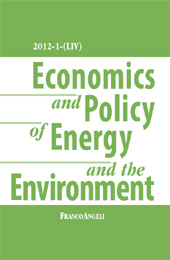To be or not to be : the crossroad between individual remote self-consumption and renewable energy communities in front of Italian public administrations and local authorities
5-35 p.
The topic of energy cooperation has been discussed internationally for over twenty years, with its historical roots going back to the early 1900s. The Directive 2018/2001/EU on renewable energy (REDII) established a unified definition of "Renewable Energy Community" (REC) as an autonomous entity controlled by local members, aimed at providing environmental, economic, and social benefits. This shift encourages end users to participate in energy management and consumption, involving complex technological and organizational dynamics among various stakeholders, including citizens, SMEs, local authorities, and public administrations. In Italy, after the early, partial transposition of RED II in 2019 that lead to over a hundred active RECs by early 2024, the final regulations expanded the operational scope and allowed for greater participation in energy sharing and self-consumption processes
The paper focus on the role of public administrations in promoting RECs, examining potential legal forms and strategic choices, especially regarding the inclusion of the Remote Individual Self-Consumer (RISC or AID in Italian Acronym). While this new configuration seeks to accommodate those who cannot join a community, it may create ambiguity for local authorities, as they may choose between individualism and community focused approaches. Given the complexity and novelty of these developments, further reflection is needed to assess the opportunities and risks associated with new configurations in the energy landscape. [Publisher's Text]
-
Articoli dello stesso fascicolo (disponibili singolarmente)
-
-
Informazioni
Codice DOI: 10.3280/EFE2024-002001
ISSN: 2280-7667
MATERIE
PAROLE CHIAVE
- energy transition, shared energy, remote self-consumption, renewable energy community


